
2025 Speakers
More speakers to be announced
Speakers
-
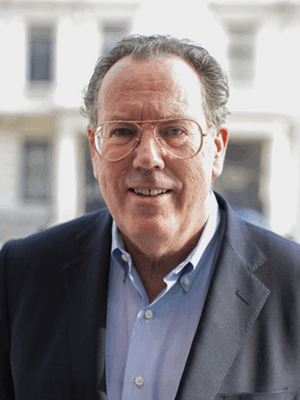
Richard Kitney
SynbiCITE
Richard is the Chairman of the Institute of Systems and Synthetic Biology; and Co-director of the EPSRC National Centre for Synthetic Biology and Innovation
Richard Kitney
SynbiCITE
Bio
Richard Kitney is Professor of Biomedical Systems Engineering; Chairman of the Institute of Systems and Synthetic Biology; and Co-director of the EPSRC National Centre for Synthetic Biology and Innovation. He was Founding Head of the Department of Bioengineering, Dean of the Faculty of Engineering.
He Chaired The Royal Academy of Engineering Inquiry into Synthetic Biology http://www.raeng.org.uk/publications/reports/synthetic-biology-report . Kitney is a member of the Ministerial Leadership Council for Synthetic Biology and was one of the main authors of the UK Roadmap for Synthetic Biology http://www.rcuk.ac.uk/RCUK-prod/assets/documents/publications/SyntheticBiologyRoadmap.pdf.
Richard is recognised as a leading research worker in the field of synthetic biology and, with Professor Paul Freemont, has been responsible for developing the Imperial College Hub for Synthetic Biology which is now recognised as one of the leading international centres in the field.
In 2013, they were successful in winning the national competition to establish the UK national industrial translation centre for synthetic biology – SynbiCITE.
Richard has published over 300 papers in the fields of synthetic biology, mathematical modelling, biomedical information systems, and medical imaging and has worked extensively in and with industry.
Kitney was made a Fellow of the World Technology Network in 1999 for his innovative work in the fields of health and medicine. He was made an Academician of the International Academy of BioMedical Engineering in September 2003 (this is the highest honour bestowed by the International Federation of BioMedical Engineering Societies). He is also a Fellow of AIMBE, the America Academy of BioMedical Engineering.
In 2006 he was made an Honorary Fellow of both The Royal College of Physicians and The Royal College of Surgeons. In June 2001, Professor Kitney was awarded The Order of the British Empire (OBE) in the Queen’s Birthday Honours List for services to Information Technology in Biomedicine.
-

Paul Freemont
SynbiCITE
Paul has been working at the forefront of international synthetic biology developments since 2002 and has played a key role in developing from the outset the UK strategy for synthetic biology research, innovation and training.
Paul Freemont
SynbiCITE
Bio
Paul has been working at the forefront of international synthetic biology developments since 2002 and has played a key role in developing from the outset the UK strategy for synthetic biology research, innovation and training.
A leading figure in synthetic biology, he has played a key part in the development of synthetic biology in the UK and was a co-author of the British Government’s UK Synthetic Biology Roadmap. Paul has been a passionate advocate for synthetic biology research and translation both in Europe and internationally and has participated as a technical expert in the United Nations Convention for Biological Diversity and Biological Weapons Convention. He is also a working group member of the US NIST synthetic biology standards consortium.
Paul’s research interests span from understanding the molecular mechanisms of human diseases and infection to the development of synthetic biology platform technologies and biosensors and he is the author of over 170 peer-reviewed scientific publications. He gives many lectures both at international scientific meetings and also public lecture – the most recent being the Ellison-Cliffe medal lecture at the Royal Society of Medicine.
Paul co-founded and co-directs the UK’s first academic research centre for synthetic biology at Imperial College London (CSynBI) and the first R&D centre for synthetic biology SynbiCITE.
Paul is also very active in public engagement including numerous public debates – the most recent at the Royal Institution and public displays including at the Science Museum and the first ‘pop-up’ lab at the Victoria and Albert museum. He is also an advocate for training young people and talks regularly at schools and and has successfully co-supervised Imperial undergraduate iGEM teams since 2006.
-
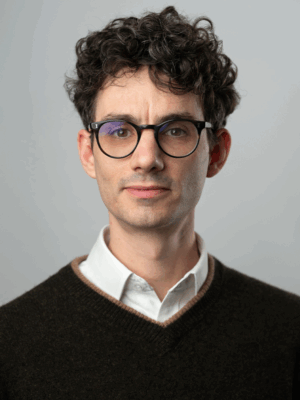
James Field
LabGenius
James is the CEO of LabGenius, a next-generation antibody discovery company.
James Field
LabGenius
Bio
James is the CEO of LabGenius, a next-generation antibody discovery company.
LabGenius has pioneered the development of an ML-driven antibody engineering platform that’s capable of designing, conducting and critically learning from its own experiments. As CEO, James has raised >$70M in financing from top-tier VCs (e.g. M Ventures, Octopus Ventures, Lux Capital, Obvious Ventures, Atomico and Kindred) and struck R&D deals with top pharma companies like Sanofi.
Prior to founding LabGenius, James completed a PhD at Imperial College where he developed novel methods for re-engineering protein nanocages for targeted drug delivery.
-
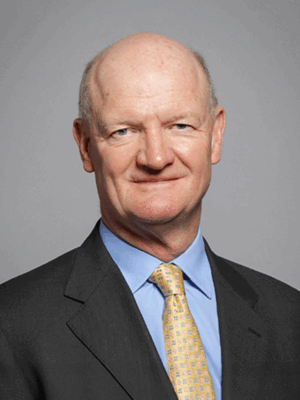
Lord David Willetts
Foundation for Science & Technology
Lord Willetts is Chair of the Regulatory Innovation Office
Lord David Willetts
Foundation for Science & Technology
Bio
Lord Willetts was appointed as Chair of the Regulatory Innovation Office in March 2025.
Lord Willetts brings a wealth of leadership experience from across the public and private sectors which will help the RIO help to deliver its priorities.
As the Member of Parliament for Havant, he served as Minister for Universities and Science from 2010 to 2014. He has made extensive contributions to the UK science and technology sector, including sitting on the board of UK Research and Innovation (UKRI) and chairing the British Science Association, the UK Space Agency Board, and the Foundation for Science and Technology.
He was elected Conservative MP for Havant in Hampshire on 9 April 1992.
Education
David was educated at King Edward’s School, Birmingham and Christ Church, Oxford, where he studied philosophy, politics and economics.
Career in politics
David began his career in Parliament as the MP for Havant in 1992. He served as Paymaster General and then in the Shadow Cabinet in a range of roles, including Shadow Secretary of State for Trade and Industry, Shadow Secretary for Education and Skills, and Shadow Secretary for Innovation, Universities and Skills. He has also worked at HM Treasury and in the Number 10 Policy Unit.
Career outside politics
David has written widely on economic and social policy. In 2011 he published a book, ‘The Pinch: How the baby boomers took their children’s future – and why they should give it back’.
Personal life
David is married to the artist Sarah Butterfield, with whom he has 2 children.
Chair: Regulatory Innovation Office
Working with officials and ministers, the Chair of the Regulatory Innovation Office (RIO) provides leadership and direction to the RIO. The RIO is an office within the Department for Science, Innovation and Technology (DSIT) that helps reduce the burden for businesses bringing new products to the market in some of the UK’s fastest-growing sectors.
To date, the Regulatory Innovation Office has announced 4 priority areas:
- engineering biology
- space
- artificial intelligence and digital in healthcare
- connected and autonomous technology
-
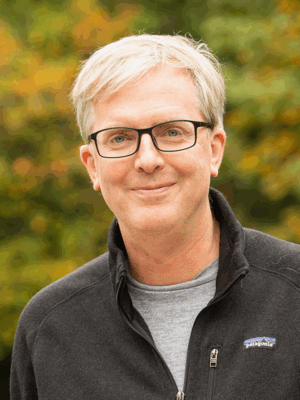
Drew Endy
Stanford University

Drew Endy
Stanford University
Bio
Drew Endy is the Martin Family University Faculty Fellow in Undergraduate Education at Stanford University and Science & Senior Fellow (courtesy) of the Hoover Institution.
-
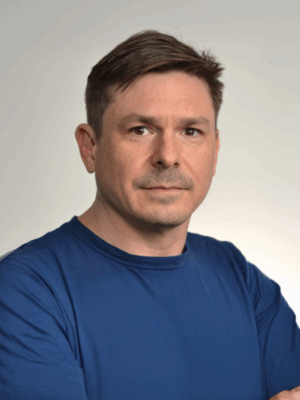
Chris Voigt
MIT
Christopher Voigt, PhD, is the Department Head of Biological Engineering at MIT, holds the Daniel I.C. Wang Professorship, and is the Co-Director of the Synthetic Biology Centre.
Chris Voigt
MIT
Bio
Christopher Voigt, PhD, is the Department Head of Biological Engineering at MIT. He is an expert in Synthetic Biology and his lab has applied genetic engineering to problems in agriculture, health, computation, medicine, chemicals/materials, national security, and infrastructure. He holds the Daniel I.C. Wang Professorship and is Co-Director of the Synthetic Biology Center.
He received his BSE in Chemical Engineering from the University of Michigan (1998) and PhD in Biophysics from Caltech (2002). He is a founder of Pivot Bio (microbial agricultural products), Asimov (human cell synthetic biology), and Fieldstone (national security and biotechnology). He is a Board Member of the Novo Nordisk Foundation. He serves on the science advisory boards of DSM–Firmenich, Bolt Threads, Empress Bio, Aanika, Senti Bio, Axcella, Robigo, Anthology Bio, and Twist Bioscience. He is an equity partner at DCVC Bio, Bio-innovation, and Pillar. He has been honored with a National Security Science & Engineering Faculty Fellowship (NSSEFF), Bush Fellows Research Study Team (BFRST), and is the Director of the Army Center for Synthetic Biology.
He has been honoured as a Sloan Fellow, Pew Fellow, Packard Fellow, NSF Career Award, Vaughan Lecturer, MIT TR35, Schmidt Innovation Fellow, and SynBiobeta Entrepreneurial Leadership Award.
-
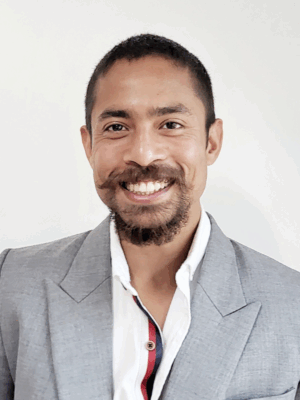
Prantar Tamuli
Tattva
Prantar Tamuli is the founder of Tattva, a biotechnology platform leveraging systems biology and cellular intelligence of cyanobacteria to develop carbon-negative engineered living materials.
Prantar Tamuli
Tattva
Bio
Prantar Tamuli is the founder of Tattva, a biotechnology platform leveraging systems biology and cellular intelligence of cyanobacteria to develop carbon-negative engineered living materials. He is the recipient of the Manton Prize 2020 from the British Phycological Society for the invention of a novel solid-state cyanobacterial biomanufacturing technique.
He is an interdisciplinary scientist and a PhD scholar at the Advanced Centre for Biochemical Engineering, University College London, where his research focused on native phenotypic programming, solid-state photobioreactor engineering, and the process intensification of photosynthetic living material production for industrial applications. Prior to bioengineering, he worked for over a decade as a professional architect designing large-scale, ecologically regenerative infrastructure. His trajectory spans synthetic biology, bioprocess engineering, and sustainable construction, forming the basis of Tattva’s long-term vision: to create a biologically grown built environment through programmable microbial systems that replace extractive materials with regenerative, living materials.
-
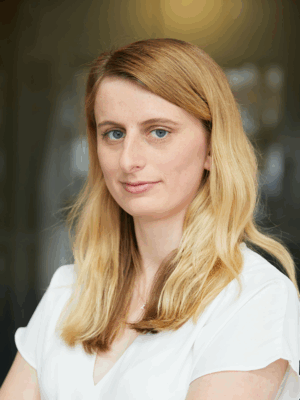
Alicia Showering
BugBiome
Dr Alicia Showering is the CEO and Co-Founder of BugBiome, an agtech start-up discovering bioinsecticides from microbes.
Alicia Showering
BugBiome
Bio
Dr Alicia Showering is the CEO and Co-Founder of BugBiome, an agtech start-up discovering bioinsecticides from microbes. She holds a PhD focused on how microbes and their metabolites influence insect attractiveness. BugBiome has developed a phenotypic screening platform powered by engineering biology to identify microbial strains that modulate insect behaviour, enabling the discovery of novel insecticides for sustainable crop protection.
-
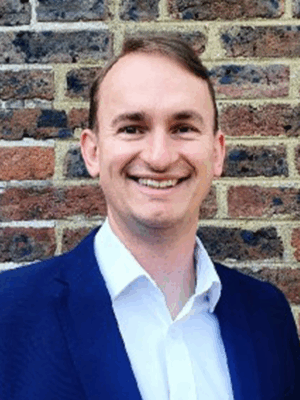
Ben Wilding
Sun Bear Biofuture
Ben Wilding is Co-Founder and CEO of Sun Bear Biofuture who are bioengineering the future of ingredients.
Ben Wilding
Sun Bear Biofuture
Bio
Ben Wilding is Co-Founder and CEO of Sun Bear Biofuture who are bioengineering the future of ingredients. His background is in business and technology, having run a software consultancy in London for 10 years and several other businesses. He holds a Masters degree in Sustainability and Behaviour Change. He leads on the company strategy, culture and collaborations with strategic partners at Sun Bear Biofuture. He is passionate about having a positive impact on the planet through biotechnology.
-
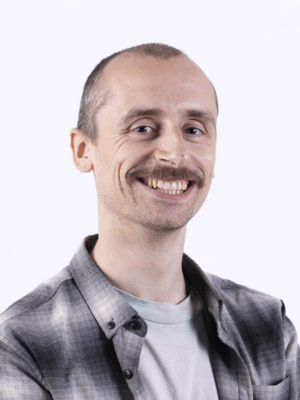
Joe Price
Evolutor
Joe Price is the Founder of Evolutor.
Joe Price
Evolutor
Bio
Joe Price is the Founder of Evolutor. Evolutor builds and deploys unique genetic toolkits and lab hardware to leverage the power of top-down evolutionary microbe development in new ways.
The team’s technological philosophy is built on the fact that biology is fundamentally not an engineered system. Despite the major advancements in synthetic biology, it remains true that only an extremely marginal portion of microbial diversity is directly engineerable. By better harnessing evolution, Evolutor seeks to make the bottleneck of un-engineerability entirely obsolete.
To achieve this ambition, Evolutor is generating microbes into a small number of targeted verticals. Their flagship bacteria are evolved to rapidly convert end-of-life tyres into fermentation feedstock for new biopolymer and biochemical production. Beyond this flagship, Evolutor will scale to target other challenging wastestreams as they expand core microbe evolution technology into construction of the world’s first automated evolutionary biofoundry.
-
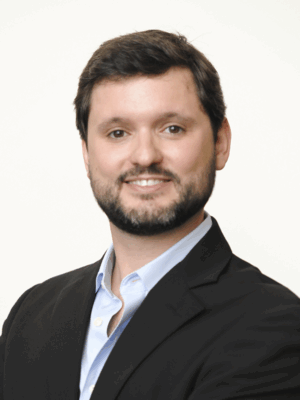
Pedro Correa de Sampaio
Neobe Therapeutics
Pedro Correa de Sampaio is the Co-Founder and CEO at Neobe Therapeutics.
Pedro Correa de Sampaio
Neobe Therapeutics
Bio
Pedro is a cancer biologist and entrepreneur with a long-standing interest in the studying and targeting of the tumour microenvironment (TME). He obtained his PhD from the University of Cambridge, where he initially developed new 3D models to study angiogenesis in solid tumours. Pedro then moved to the MD Anderson Cancer Center in Houston, Texas, for a Postdoctoral Fellowship studying spatial interactions between stromal components and immune cell infiltration in solid tumours. His observations made him decide to build innovative solutions to tackle this problem, leading him to return to the UK and co-found Neobe, engineering bacteria to remove barriers to drug infiltration in cancer patients. He has since grown the company and raised £3.5M in equity and non-dilutive funds, enabling the establishment of its engineered bacterial therapeutics platform, with two assets currently in pre-clinical development.
-
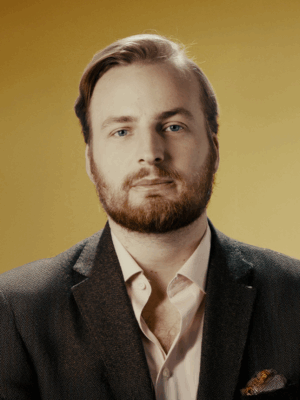
Gustaf Hemberg
Scindo
Gustaf is the CEO and Co-Founder of Scindo, a company pioneering AI-guided enzyme design to enable sustainable chemical manufacturing from renewable and upcycled feedstocks.
Gustaf Hemberg
Scindo
Bio
Gustaf is the CEO and Co-Founder of Scindo, a company pioneering AI-guided enzyme design to enable sustainable chemical manufacturing from renewable and upcycled feedstocks. He earned his DPhil in organic chemistry and chemical biology from the University of Oxford under the supervision of Professor Ben G. Davis, where his research focused on the discovery and engineering of novel enzyme functionalities for selective C–H activation and C–C bond cleavage — work that laid the foundation for Scindo’s technology platform. Prior to this, he completed his MChem at Oxford with a dissertation on the incorporation of unnatural amino acids into natural enzymes.
Before founding Scindo, Gustaf worked in finance and private equity, including as Head of Research at a London-based PE fund specialising in the acquisition and transformation of precision engineering businesses. Combining deep scientific expertise with commercial insight, he now leads Scindo with a mission to transform the chemical industry by unlocking nature’s catalysts.
-
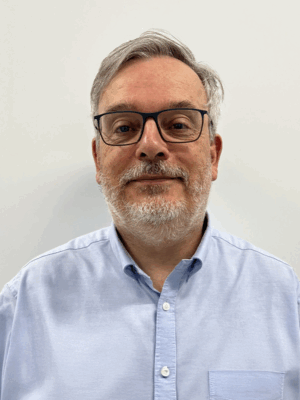
Nigel Scrutton
C3 Biotech
Nigel Scrutton is the Chief Scientific Officer and Co-Founder of C3 Biotech.
Nigel Scrutton
C3 Biotech
Bio
Nigel Scrutton is the Chief Scientific Officer and Co-Founder of C3 Biotech. He leads the company’s scientific strategy at the intersection of chemistry, biology, and engineering. He plays a pivotal role in shaping C3’s technology platform, driving innovation in next-generation biomanufacturing, and guiding the company’s long-term vision and global impact.
Nigel is a Fellow of the Royal Society and has served as Director of the UK Future Biomanufacturing Research Hub, which he founded in 2019. Previously, he was Director of the Manchester Institute of Biotechnology (2010–2019), during which time the Institute was awarded the Queen’s Anniversary Prize for Higher and Further Education (2018–2020) for its national leadership in biotechnology and biomanufacturing.
Nigel also advises the UK Government on the strategic development of biotechnology in both civilian and defence contexts.
-
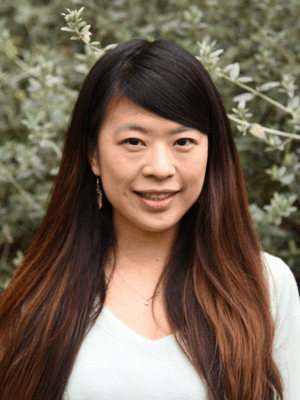
Kyoko Morimoto
Kyomei
Kyoko Morimoto is the CSO & Co-founder of Kyomei which is pioneering molecular farming, transforming crop leaf biomass to sustainable bio-factories for food ingredient production.
Kyoko Morimoto
Kyomei
Bio
Kyoko leads Kyomei in pioneering molecular farming, transforming crop leaf biomass to sustainable bio-factories for food ingredient production. With over 15 years of expertise in plant science, particularly leveraging diverse techniques to study protein stability, proteolysis, and protein–chemical interactions, she has contributed to approaches enabling high-yield production of complex molecules in plants. Kyoko earned her PhD in Applied Biological Chemistry from the University of Tokyo and spent over five years at the University of Oxford’s Department of Plant Sciences, where she explored plant proteins and small molecule interactions using proteomics and chemical biology. During her academic tenure, she was recruited by Syngenta to develop a screening platform bridging discovery and real-world agriculture. Her research background and passion for sustainable food solutions inspired her entrepreneurial journey with Kyomei. At SynbiTECH 2025, she will share insights on advancing molecular farming to build resilient, low-carbon food systems.
-
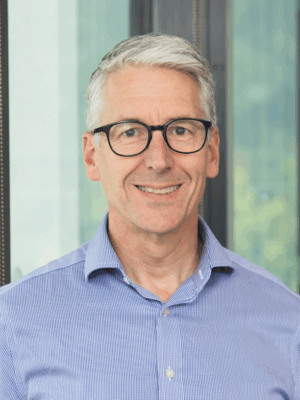
David Venables
Laverock Therapeutics
David Venables, PhD, is CEO of Laverock Therapeutics.
David Venables
Laverock Therapeutics
Bio
David Venables, PhD, is serial biotechnology entrepreneur and leader. He has taken companies from creation through to acquisition or IPO and products from early development to commercialisation.
He is CEO of Laverock Therapeutics, a gene-silencing company with a uniquely powerful technology for the development of programmable advanced therapies to tackle major diseases, where he has led the company through foundation, seed funding and corporate development.
He was previously President, AskBio Europe, having joined following the acquisition of Synpromics, where he was CEO and led the company through two rounds of funding prior to acquisition. He was VP-CMC for Nightstar Therapeutics, a gene therapy company acquired by Biogen, CEO of Antara Therapeutics, where he raised private funding and led an IPO in Australia, and CEO of Ark Therapeutics.
David serves on the Boards of Concinnity Genetics, Axol Biosciences and NovalGen. He is also an Honorary Professor at Edinburgh University supporting company collaboration and entrepreneurship in The College of Medicine and Veterinary Medicine.
-
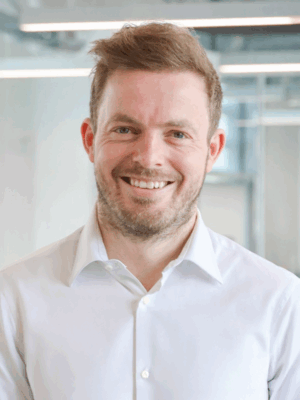
Daniel Hansen
Bactobio
Daniel Hansen is Co-Founder and CEO at Bactobio
Daniel Hansen
Bactobio
Bio
Daniel has been working on bringing technology and business together for most of his adult life. Daniel completed his bachelor’s at the University of Oxford and PhD at Imperial College London. His PhD project focused on cultivating unculturable bacteria and screening them for antibiotics.
Daniel has an MSc in Finance from IE Business School Madrid and worked in investment banking for Barclays Capital before helping Albion Ventures evaluate spinouts from UCL. He Co-Founded Bactobio in 2020 to harness breakthroughs in genomics, machine learning, and bioengineering to cultivate previously unculturable microbes and mine them for antimicrobials for agriculture and healthcare – for a greener and safer future.
-
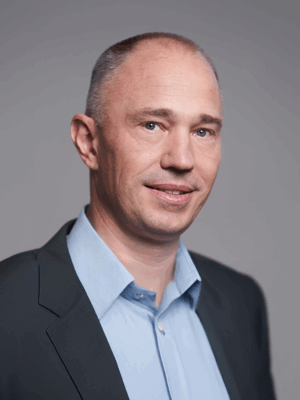
Joško Bobanović
Sofinnova Partners
Joško joined Sofinnova Partners in 2010 as Partner dedicated to activities in industrial biotech.
Joško Bobanović
Sofinnova Partners
Bio
Joško Bobanović [pronounced as Yoshko Bobanovich] joined Sofinnova Partners in 2010 as Partner dedicated to activities in industrial biotech. He focuses on early-stage sustainable companies in Europe and North America with applications in food, agriculture, chemicals and materials. Joško sits on the boards of Metgen, Synthace, DNA Script, Biosyntia, DMC Biotechnologies, Pyrowave, Protera, Novameat and Prometheus Materials. Joško holds a BSc. in physics from University of Zagreb, a PhD in physical oceanography from Dalhousie University and an MBA in finance and marketing from McGill University.
-
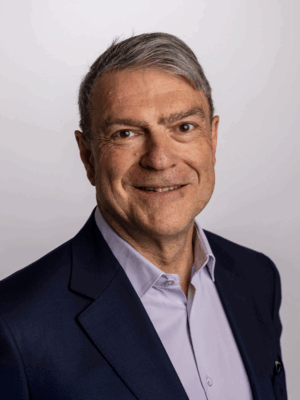
Clive Cookson
Financial Times
Clive Cookson is a Senior Science Writer for the Financial Times
Clive Cookson
Financial Times
Bio
Clive Cookson has worked in science journalism for the whole of his professional life. He left Oxford University with a First Class Honours degree in chemistry and, after training on the Luton Evening Post, joined Times Higher Education – first as science correspondent in London and then as North America editor in Washington DC.
Clive returned to London as technology correspondent of the Times and moved to BBC Radio as science and medical correspondent. He went back to print journalism at the Financial Times first as technology editor then in 1991 as science editor, leading a writing team covering science and health, pharmaceuticals and biotechnology. In October 2023 Clive became the FT’s senior science writer. He has won numerous science journalism awards, including British Science Writer of the Year 2022.
-
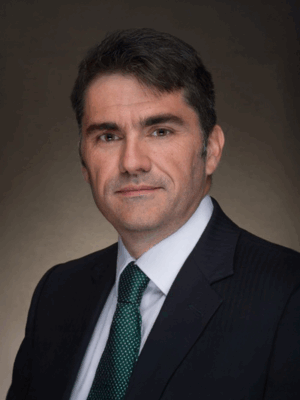
Tim Davies
Corteva Agriscience
Tim Davies is the Biologicals Technology Leader and a Distinguished Laureate at Corteva Agriscience focusing on the development and improvement of bioprocesses for the manufacture of crop protection products.
Tim Davies
Corteva Agriscience
Bio
Tim Davies is the Biologicals Technology Leader and a Distinguished Laureate at Corteva Agriscience focusing on the development and improvement of bioprocesses for the manufacture of crop protection products. Tim took this role in 2022, having previously held the roles of Bioprocess Science and Technology Leader and Program Leader for Fermentation Technology at Corteva since 2021 and 2019 respectively.
Tim has a BSc in Microbiology from the University of London and a PhD in Chemical Engineering from the University of Manchester Institute of Science and Technology. Specialising in anaerobic fermentation technology he continued his professional development under Prof Lars Ljungdahl at the University of Georgia (UGA). Having led Bioprocess development science at Aureozyme, a Georgia based technology start-up, Tim became director of the Bioexpression and Fermentation Facility at UGA in 2001. In this role he collaborated with almost 200 different companies and research institutions over 10 years. Concurrently he was a partner at Downstream Biotech Consulting Inc. and consulted for clients in the USA and Europe.
In 2011 Tim became CTO of Green Biologics in the UK. During his tenure GBL became the first industrial biotech company in 60 years to develop and implement a new ABE manufacturing process, retrofitting a Minnesota ethanol plant for acetone and butanol production and achieving commercial sales in 2017. Tim then founded Rubus Scientific Ltd., specialising in technical strategy development, biomanufacturing development and scale up where he was Director until joining Corteva.
Tim has been active in professional organizations, in particular the Society for Industrial Microbiology and Biotechnology. He was on the SIMB Board from 2010-2016 and was President in 2015. He was Program Chair of the SIMB Annual Meeting in Toronto in 2009 and has been Program Chair of the RAFT fermentation conference three times. In 2019 he won the Charles Porter Award. Tim has served on the Board and Scientific Advisory Boards of several companies and organizations. He is currently on the SIAB for the DOE-funded Center for Bioenergy Innovation, the board of Heartland Bioworks (Midwest USA) and is a member of the Industrial Biotechnology Leadership Forum (IBLF, UK).
-
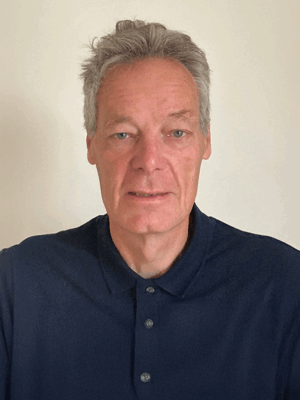
Adrian Butt
Colorifix
Adrian Butt is the Head of Regulation at Colorifix Ltd
Adrian Butt
Colorifix
Bio
Adrian joined Colorifix Ltd in 2021 and is Head of Regulation. In his day to day activities he works across the company with scientists, and the commercial and implementation teams to drive the company’s mission in building a global business by navigating the regulatory compliance challenges.
In the Civil Service, he worked with Sir David King on the GM Science Review and Lord Sainsbury on the development of regulations centred around nanotechnology and represented the UK & EU in the Climate Change adaptation negotiations under the UNFCCC. Adrian did his PhD at the University of Nottingham and post doctoral research at Michigan State University, USA, on the biochemistry and molecular biology of acyl carrier protein and its role in fatty acid metabolism in plants.
-
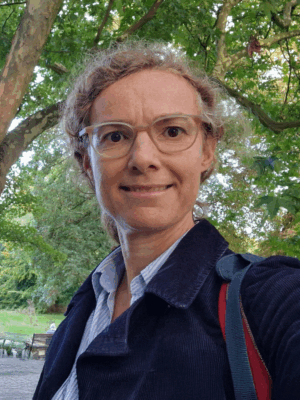
Muriel Dewilde
Bio Base Europe Pilot Plant
Muriel is the Business Development Manager at Bio Base Europe Pilot Plant.
Muriel Dewilde
Bio Base Europe Pilot Plant
Bio
Muriel Dewilde studied bioengineering at the University of Leuven in Belgium and worked 10 years as a process engineer at the European wheat plants of Tate & Lyle and Tereos, starting-up new industrial lines and coordinating pilot projects.
She became Business Development Manager at the Bio Base Europe Pilot Plant in Ghent, Belgium in 2010, at the start of its operations.
Since that time, she has managed a myriad of biotechnological scale-up projects for companies around the world in the fields of a.o. microbial proteins, cosmetics, nutraceuticals, ag tech products, fine chemicals and bioplastics.
-
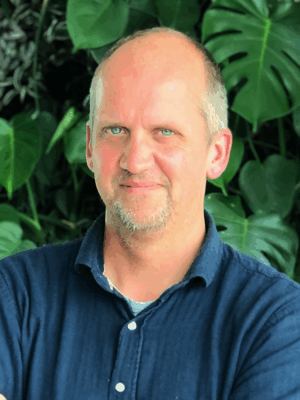
Reuben Carr
NCIMB Ltd
After a successful 21-year career leading one of the UK’s most prominent Engineering Biology company’s, he recently joined the NCIMB as their Technology Commercialisation Manager.
Reuben Carr
NCIMB Ltd
Bio
Reuben is passionate about harnessing biotechnology to meet societal challenges linked to health and sustainability. After a successful 21-year career leading one of the UKs most prominent Engineering Biology company’s Ingenza Ltd, he recently joined the NCIMB as their Technology Commercialisation Manager. In this new role he will be seeking to drive greater commercial exploitation of the internationally renowned microbial culture collection and other wider capabilities the NCIMB offers. With a strong technical focus spanning chemical and biological disciplines, Reuben has consistently delivered innovation that enable scalable, cost effective and practical solutions which have industrial application.
-
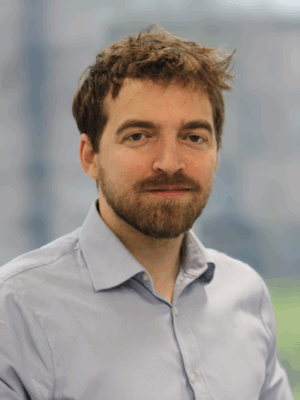
Craig Woods
Forge Genetics
Craig Woods is the CEO of Forge Genetics, a biotechnology company delivering advanced strain engineering, fermentation, and analytics services powered by its proprietary gene-editing platform, Forge Editing.
Craig Woods
Forge Genetics
Bio
Craig Woods is the CEO of Forge Genetics, a biotechnology company delivering advanced strain engineering, fermentation, and analytics services powered by its proprietary gene-editing platform, Forge Editing. The technology enables precise genetic manipulation of hard-to-engineer bacteria and is continually being developed for new bacterial species and applications, including as a safer alternative to CRISPR for therapeutic use. Craig holds a PhD in molecular microbiology from the University of Nottingham and has a background in genetics, next-generation sequencing, and bioinformatics. Before leading Forge, he served as VP of R&D at Deep Branch, where he directed strain and process development for sustainable protein production.
-

Fiona Mischel
Holiferm
Fiona is the Associate Director of Strategic Development at Holiferm
Fiona Mischel
Holiferm
Bio
Fiona is the Associate Director of Strategic Development at Holiferm, a commercial-scale UK biochemicals company. Her work focuses on business development, strategic partnerships, and developing compelling narratives to illustrate the transformative impact of the bioeconomy. She also has expertise in global bioeconomy policy and collaboration. Fiona began her career in science communication, and she previously worked as the Director of International Outreach for SynBioBeta. She was also a member of the OECD’s Expert Focus Group on Synthetic Biology.
-

Jason Chin
Ellison Institute of Technology
Jason is Founding Director of the Generative Biology Institute (GBI) at the Ellison Institute of Technology, Oxford
Jason Chin
Ellison Institute of Technology
Bio
Jason is Founding Director of the Generative Biology Institute (GBI) at the Ellison Institute of Technology, Oxford, a Professor of Chemistry and Chemical Biology at the University of Oxford Department of Chemistry and a fellow of Magdalen College, Oxford. He is also founder and CSO of Constructive Biology Ltd, which develops and applies his foundational advances in engineering biology and synthetic biology, and a NonExecutive Director at the Department of Science, Innovation and Technology.
Prior to the launch of GBI, Jason was a Programme Leader at the Medical Research Council Laboratory of Molecular Biology (MRC-LMB), where he was also Founder and Head of the Centre for Chemical & Synthetic Biology (CCSB) and joint Head of the Division of Protein and Nucleic Acid Chemistry. He was also a Professor of Chemistry and Chemical Biology at the University of Cambridge Department of Chemistry, and a fellow of Trinity College, Cambridge.
Jason was awarded the Francis Crick Prize by the Royal Society in 2009 and the Royal Society of Chemistry’s Corday Morgan Prize and the European Molecular Biology Organization’s (EMBO) Gold Medal, in 2010.
He is the inaugural recipient (2011) of the Louis-Jeantet Young Investigator Career Award and in 2019 he was awarded the Sackler International Prize in the Physical Sciences. Jason is in the European Patent Office Inventor Hall of Fame, a member of EMBO, and was awarded an honorary doctorate from ETH, Zurich in 2024. He is a Fellow of the Academy of Medical Sciences, and a Fellow of The Royal Society
-
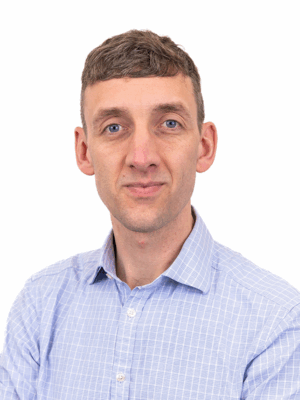
Mark Cresswell
Lucideon
Mark joined Lucideon in October 2012 and is a Chartered Chemist with a PhD specialising in synthetic and materials chemistry, sol-gel chemistry, formulation science, and controlled release technologies.
Mark Cresswell
Lucideon
Bio
Mark joined Lucideon in October 2012 and is a Chartered Chemist with a PhD specialising in synthetic and materials chemistry, sol-gel chemistry, formulation science, and controlled release technologies. He splits his time between supporting the Formulations team on active projects, assisting the commercial team in scoping new projects, and helping develop and grow new business areas, including biotech.
As well as contributing to the development of Lucideon’s iCRT technology platform (controlled release of actives and ingredients) and research programmes, Mark uses his materials chemistry expertise to lead on a range of client projects focused on materials synthesis, controlled release applications and formulation science across the pharmaceutical, consumer health, biotech, and advanced ceramic sectors.
-
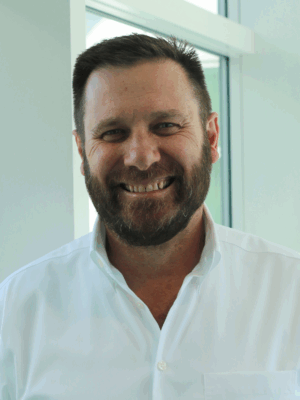
Jeff Anthony
NPL
Jeffrey leads on Engineering Biology Partnerships at the National Physical Laboratory.
Jeff Anthony
NPL
Bio
Jeffrey leads on Engineering Biology Partnerships at the National Physical Laboratory NPL having joined their Life Sciences & Health Team in 2019. His current area of focus centres on building collaborations with EngBio partners from industry, academia and the public sector to identify the ways in which NPL’s metrology expertise and capability can support research and its translation to drive growth.
Jeffrey’s technical background is in microbiology, having studied Biotechnology at the Royal Melbourne Institute of Technology. He has worked in the pharmaceutical industry in quality assurance and product development roles in Australia with CSL and was responsible for the early development of the American Type Culture Collection in Europe when working with LGC. Jeffrey has worked in reference materials development roles and he has experience with precision breeding technologies focussed on Agricultural applications having led the LGC Group’s initial launch of their genomics business in Southeast Asia. Today Jeffrey is a strong advocate for the development of industry aligned standards and metrics which can enable investment and smooth the path to growth for engineering biology companies across the UK and for the role standards can play in enabling global supply chains.
-
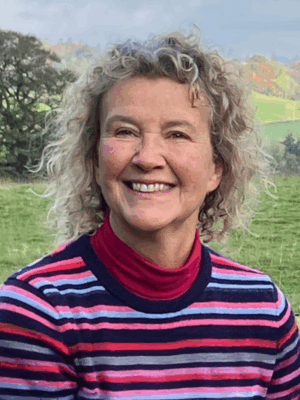
Deborah Davies
Olon BioTech
In her 7 years at Olon in Business Development, Deborah reaches out to new clients, many of whom are start-ups, to help them in their scale-up journey with Olon
Deborah Davies
Olon BioTech
Bio
Following her biotechnology degree, Deborah’s first role was developing microbial fermentation processes at lab scale. She has since stayed within biotechnology and held a number of commercial roles within food, pharma and diagnostics. In her 7 years at Olon in Business Development, Deborah reaches out to new clients, many of whom are start-ups, to help them in their scale-up journey with Olon. In her spare time, she is an artisan cider maker, a keen motorcyclist and is learning to play the drums.
-

Rick Johnson
BioMADE
Rick Johnson is a Distinguished Visiting Fellow at Stanford University and the Hoover Institution, CEO of Global Helix LLC, a Director of BioMADE, and a global leader in advancing synthetic biology, bio-innovation policy, and secure biofutures.
Rick Johnson
BioMADE
Bio
Rick Johnson is a Distinguished Visiting Fellow at Stanford University and the Hoover Institution, where he helps lead the Global BioStrategies Leadership Initiative to advance a robust, secure, and flourishing biofuture. He has served on the National Academy of Sciences (NAS) Board on Life Sciences and several NAS national committees, and is a co-author of eight high-impact NAS reports.
Rick is the CEO and founder of Global Helix LLC, a science, technology, and innovation (STI) thought leadership firm. His work focuses on synthetic and engineering biology, innovative biofutures, STI policy and innovation models for emerging technologies, and the intersection of STI and security.
He serves on multiple leadership boards and initiatives, including the iGEM Foundation, BioMADE, the Engineering Biology Research Consortium (EBRC), and the BioBricks Foundation. He is Chair (Emeritus) of the OECD/BIAC Technology & Innovation Committee, Co-Chair of the Engineering Biology Global Forum, and Chair of the Australia Centre of Excellence in Synthetic Biology.
Rick is also a member of the OECD BioFutures Expert Group, the OECD Global Forum on Technology, the World Economic Forum Global Futures Council, and the EBRC Council, contributing globally to shaping policy, innovation, and strategy for the bioeconomy.
-
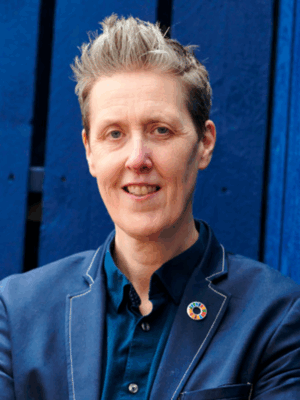
Susan Rosser
UK Centre for Mammalian Synthetic Biology
Susan is the Director of the UK Centre for Mammalian Synthetic Biology and Co-director of the Edinburgh Genome Foundry for synthetic DNA synthesis and assembly.
Susan Rosser
UK Centre for Mammalian Synthetic Biology
Bio
Susan is Professor of Synthetic Biology and Royal Academy of Engineering (RAEng) Chair in Emerging Technologies at the University of Edinburgh. She is Director of the UK Centre for Mammalian Synthetic Biology and Co-director of the Edinburgh Genome Foundry for synthetic DNA synthesis and assembly. She also held a prestigious Engineering and Physical Sciences Research Council (EPSRC) Leadership Fellowship in Synthetic Biology. In 2022, her work was recognised by the national academies of both Scotland and Wales, being elected as a Fellow of the Royal Society of Edinburgh (RSE) and Fellow of the Learned Society of Wales. She served as a member of the Scottish Science Advisory Council, Scotland’s highest level science advisory body, providing independent advice and recommendations on science strategy, policy and priorities to the Scottish Government. Her research focuses on using synthetic biology approaches for developing and controlling genetic circuits for applications in cell and gene therapies as well as metabolic engineering. She is co-founder of two early-stage start-ups using a combination of AI and engineering biology for new gene therapies and enzyme replacement therapies for rare diseases.
-
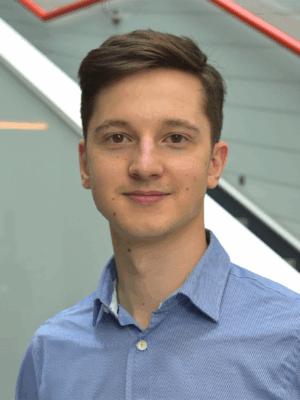
Cai Linton
Multus
Cai is the CEO of Multus, a biotech company on a mission to develop the key ingredient, growth media, to make cultivated meat affordable and profitable.
Cai Linton
Multus
Bio
Cai Linton has an MEng in Molecular Bioengineering from Imperial College London and combines technical knowledge in tissue engineering & data science with management experience. His motivation to create a sustainable future using biotechnology led him to co-found Multus to shorten routes to market and lower entry barriers in the cultivated meat industry. Multus makes it faster and cheaper to get growth media that scales, accelerating the adoption of cellular agriculture. The company’s growth media formulations and ingredients are the building blocks of cellular agriculture and enable the affordable at-scale production of real animal products, including meat, dairy, leather, and more, using cells instead of animals.
-
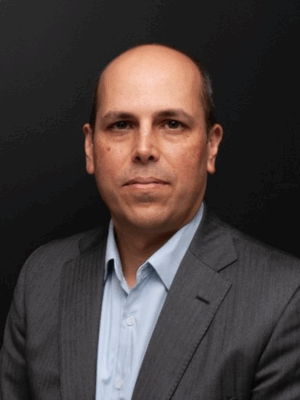
Devanand Crease
Keltie LLP
Devanand (“Dev”) Crease is a Partner in the Life Sciences team at Keltie LLP.
Devanand Crease
Keltie LLP
Bio
Devanand (“Dev”) Crease is a Partner in the Life Sciences team at Keltie LLP. Since completing a PhD in developmental biology, he has worked in the life sciences and chemicals specialisms for over 25 years and has established a practice focusing on provision of strategic advice to early stage and rapid growth technology companies. Dev has advised companies and clients in diverse fields of biotherapeutics, gene editing, synthetic biology, AI/ML, and computational biology. He handles all areas of IP development including patents, designs, trade secrets and know how. The Life Sciences team at Keltie LLP have advised emerging companies raising over $1 billion in funding over the past few years and are proactive in counselling companies throughout their IP journey.
-
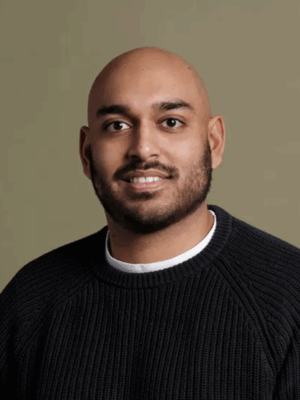
Jevan Nagarajah
Better Dairy
Jevan Nagarajah is the CEO & Founder of Better Dairy; a leading precision fermentation company based in the UK.
Jevan Nagarajah
Better Dairy
Bio
Jevan Nagarajah is the CEO & Founder of Better Dairy; a leading precision fermentation company based in the UK. Better Dairy enables next generation health, nutrition and personal care products by building the supply chain for functional milk proteins. Jevan has over 10 years of experience building and scaling tech companies including at Rocket Internet, SumUp, Ritual.co and ShareDining. Prior to this he had a career in investment banking. He holds a BSc Mathematics (First Class) from Imperial College London.
-
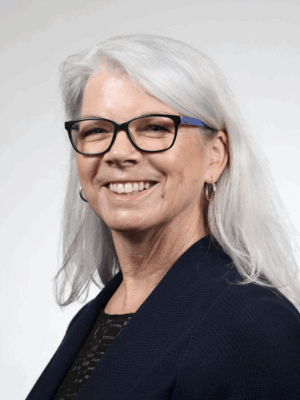
Mary Maxon
Carnegie Science
Dr. Mary Maxon is Executive Vice President at Carnegie Sciences and brings decades of experience spanning biotechnology, synthetic biology, and science policy.
Mary Maxon
Carnegie Science
Bio
Dr. Mary Maxon is Executive Vice President at Carnegie Sciences, and previously she was ExecutiveDirector of the Biosciences Institute at Schmidt Sciences, where she led a new effort to seed the next wave of innovation for the US bioeconomy. Prior to that, she was Associate Laboratory Director for Biosciences at Lawrence Berkeley National
Lab. Dr. Maxon has worked in the private sector, both in the biotechnology and pharmaceutical industries, as well as the public sector, including as the Assistant Director for Biological Research at the White House Office of Science and Technology Policy in the Executive Office of the President where she was the principal author of the Obama Administration’s National Bioeconomy Blueprint. She is a member of the International Advisory Council on Global Bioeconomy and serves as a biotechnology subject matter expert for Eric Schmidt, a Commissioner on the National Security Commission on Emerging Biotechnology. In addition to being a member of the Board of Trustees of Carnegie Science, she is also a member of the National Academy of Sciences, Engineering, and Medicine’s Standing Committee on Advances and National Security Implications of Transdisciplinary Biotechnology. She is a biopolicy advisor to the newly established Linde Center for Science, Society, and Policy at the California Institute of Technology. She earned her Ph.D. in Molecular Cell Biology from the University of California, Berkeley and completed her postdoctoral studies in genetics at the University of California, San Francisco. -
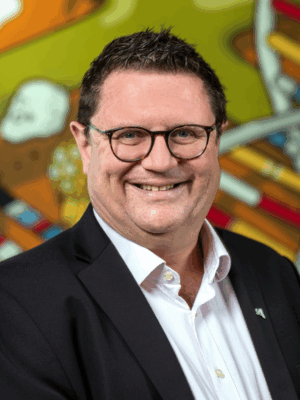
Nigel Mouncey
DOE Joint Genome Institute
Nigel is the Director of the DOE Joint Genome Institute, combining his expertise in microbiology, genomics, and synthetic biology with extensive leadership experience across academic and industry sectors to advance genome-enabled bioengineering solutions.
Nigel Mouncey
DOE Joint Genome Institute
Bio
Nigel earned his BSc in Microbiology with honors from the University of Glasgow and a PhD in Biochemistry from the University of Sussex, followed by postdoctoral research at Harvard Medical School and the University of Texas Medical School in Houston. He spent a decade in industry with Roche Vitamins and DSM Nutritional Products, before joining Dow AgroSciences in Indianapolis. Since 2017, Nigel has led the DOE Joint Genome Institute, combining his expertise in microbiology, genomics, and synthetic biology with extensive leadership experience across academic and industry sectors to advance genome-enabled bioengineering solutions. -

Tamara Kononoff
NRC-IRAP
Tamara Kononoff is an Industrial Technology Advisor with the National Research Council of Canada’s Industrial Research Assistance Program (NRC IRAP) and Program Lead for Canada–UK Co-Innovation initiatives.
Tamara Kononoff
NRC-IRAP
Bio
Tamara Kononoff is an Industrial Technology Advisor with the National Research Council of Canada’s Industrial Research Assistance Program (NRC IRAP) and Program Lead for Canada–UK Co-Innovation initiatives. Based in Saskatoon, she has over 20 years of experience working with industry, researchers, and government to help Canadian SMEs in technology-driven sectors achieve global growth. Nationally recognized for building high-impact collaborations, Tamara has led bilateral innovation programs, guided SMEs through successful international R&D projects, and opened new pathways for innovation, commercialization, investment, and market access worldwide.
-
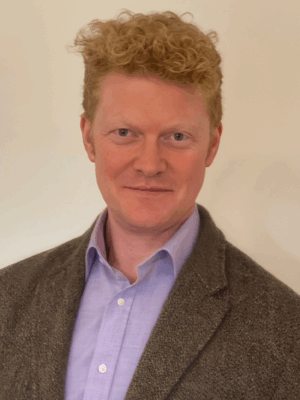
Tom Jenkins
Innovate UK
Tom is a Deputy Director within the AgriFood Systems theme at Innovate UK, the UK’s innovation agency.
Tom Jenkins
Innovate UK
Bio
Tom is a Deputy Director within the AgriFood Systems theme at Innovate UK, the UK’s innovation agency. He is the Programme Lead for Defra’s Farming Innovation Programme, delivered in partnership with Innovate UK, which supports a wide range of innovation projects developing solutions to challenges faced by farmers and growers across the agriculture sector. He also leads the Innovate UK Engineering Biology team responsible for delivering Innovate UK’s input into the UKRI Technology Missions Fund, working closely with DSIT. He’s established national programmes in alternative protein innovation, working in partnership with the BBSRC, including the Novel Low Emissions Food Production Systems competition and the National Alternative Proteins Innovation Centre.
He has led international missions to Canada and the USA that culminated in successful co-innovation programmes with the National Research Council of Canada – Industrial Research Assistance Program and Protein Industries Canada, focused on precision agriculture and plant-based proteins respectively. He has recently been focusing on delivery of a Novel Foods Global Incubator Programme to Singapore, supporting UK SMEs to establish new markets in Asia.
-
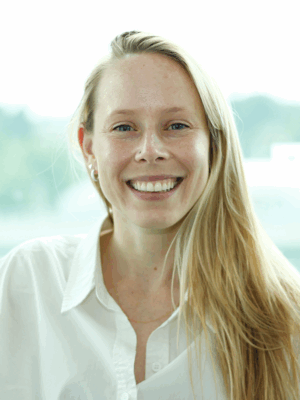
Zoe Woods
Change Bio
Zoe is the co-founder and CEO of Change Bio, a biomanufacturing company focused on recombinant protein production for sustainable food and materials.
Zoe Woods
Change Bio
Bio
Zoe is the co-founder and CEO of Change Bio, a biomanufacturing company focused on recombinant protein production for sustainable food and materials. She has grown the company from an early concept through raising capital and serving its first customers. Her leadership as a female founder has earned her recognition including a Forte Fellowship and the Women TechEU program. Before starting Change Bio, she worked at the Future of Canada Centre, a think tank dedicated to shaping Canada’s long-term economic productivity. Zoe holds an MBA and a Master of Public Policy from the University of Oxford.
-
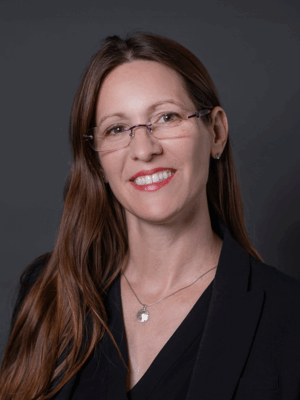
India Hook-Barnard
EBRC
India is the Executive Director at the Engineering Biology Research Consortium.
India Hook-Barnard
EBRC
Bio
Dr. India Hook-Barnard is Executive Director of the Engineering Biology Research Consortium (EBRC). She works with leaders from across academia, industry, and government sectors to identify and shape scientific opportunities, technical feasibility, and policy issues. Her goal is to advance and accelerate engineering biology solutions across all application areas, drive innovation, and grow the bioeconomy for all.
Prior to joining EBRC, India helped launch and was the Executive Director for the California Initiative to Advance Precision Medicine, and was Associate Director, Precision Medicine at the University of California, San Francisco. India worked at the U.S.National Academies of Sciences, Engineering, and Medicine (NASEM) where she directed standing committees, workshops, and six consensus reports, including Toward Precision Medicine (2011) and Industrialization of Biology (2015).
India was a postdoctoral research fellow at the National Institutes of Health, and earned her PhD in Microbiology-Medicine at the University of Missouri.
-
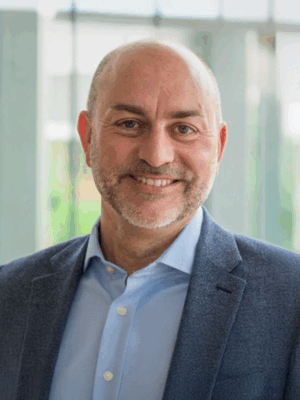
Richard Traherne
Capgemini Invent
Richard develops new strategic business areas at Capgemini Invent.
Richard Traherne
Capgemini Invent
Bio
Richard develops new strategic business areas at Capgemini Invent, bringing together its market-leading brands and innovation services to create the next frontiers. His current focus is a new synthetic biology capability within the biotechnology revolution.
His work embraces the expertise found across the company’s brands including frog, Cambridge Consultants, and the broader group. Richard joined Capgemini Invent from its subsidiary Cambridge Consultants, where he led the Wireless Division for ten years, before becoming Chief Commercial Officer leading global growth, client strategy, brand and marketing.
Before joining Cambridge Consultants, he held R&D and general management roles in both consulting and product manufacturing environments.
-
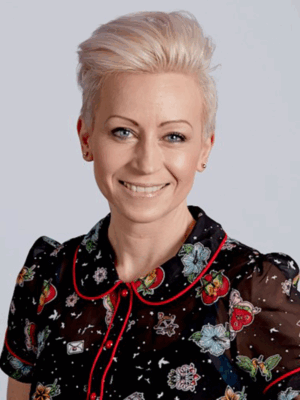
Sara Holland
Potter Clarkson
Sara is a patent attorney who has spent the past twelve years working with founders, spin-outs and research teams in the biotech landscape.
Sara Holland
Potter Clarkson
Bio
Sara Holland is a Partner and UK & European Patent Attorney at Potter Clarkson in Nottingham, specialising in synthetic biology and industrial biotechnology. With a PhD in biochemistry and genetics and postdoctoral research in yeast molecular biology, she brings deep scientific expertise to her intellectual property work. Sara supports early-stage, scientist-founded companies in identifying and protecting their IP, building strategies for fundraising, and navigating patent filings. Beyond client work, she contributes to the UK’s Engineering Biology Steering Group (Department for Science, Innovation & Technology) and serves as Vice Chair of the BioIndustry Association’s Engineering Biology Advisory Committee, helping to shape national biotech innovation policy.
-
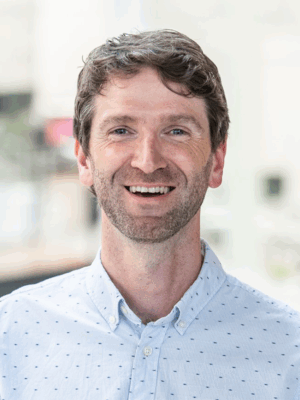
Tim Eyes
Imperagen
Tim Eyes is Co-founder and Chief Product Officer at Imperagen, where he helps drive business development and strategic partnerships.
Tim Eyes
Imperagen
Bio
Tim Eyes is Co-founder and Chief Product Officer at Imperagen, where he helps drive business development and strategic partnerships. Imperagen’s Digital Enzyme Evolution™ platform integrates AI-driven enzyme design, advanced gene assembly, and laboratory automation to engineer high-performance enzymes with unprecedented speed and precision.
As part of the founding team, Tim helped develop the platform, secure £3.5M in seed investment, and drive early commercial traction. With over 25 years of experience in protein engineering, he holds a Master’s from the University of Nottingham and a PhD from the Manchester Institute of Biotechnology, along with an Enterprise Fellowship from the Royal Society of Edinburgh.
Tim’s passion lies in harnessing biology to create a more sustainable, resilient economy and a brighter, more productive future for society.
-
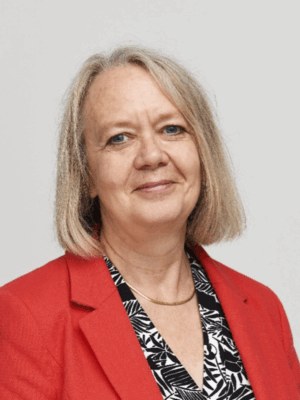
Christine Hockley
British Business Bank
Christine Hockley, Managing Director & Co-Head of Funds, British Business Bank
Christine Hockley
British Business Bank
Bio
Christine is responsible for directing venture capital fund investments in British Business Bank’s venture capital programmes including: the Patient Capital core programme which invests in early and growth stage venture capital funds; the Life Sciences Investment Programme which invests in growth stage life sciences funds; and, the Enterprise Capital Fund Programme which typically invests in emerging managers at the early stage. She has been at British Business Bank for over 10 years primarily investing in venture capital funds and has previous investment, corporate finance and commercial experience.
-
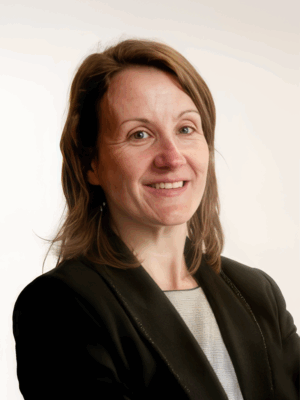
Jude Huggan
CPI
At SynbiTech, Jude will be speaking on behalf of CPI, providing insights for successful scale up from R&D towards commercialisation.
Jude Huggan
CPI
Bio
Jude Huggan has over two decades of experience in biotech across industry, academia and in the public sector in roles spanning R&D, education, business development and strategy. Jude has built, led and driven innovation initiatives across the UK and at CPI is currently developing initiatives across engineering biology, sustainable chemicals and in sustainable materials.
-
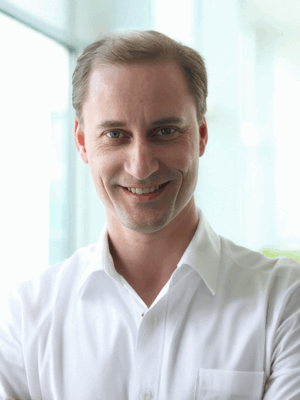
Max Ryadnov
NPL
Max Ryadnov leads Engineering Biology at NPL. He is an NPL Fellow in biometrology, Professor of biophysics, Director of the UK’s reference biofoundry and holds a PhD in Chemistry.
Max Ryadnov
NPL
Bio
Max Ryadnov leads Engineering Biology at NPL. He is an NPL Fellow in biometrology, Professor of biophysics, Director of the UK’s reference biofoundry and holds a PhD in Chemistry.
In his role Max is responsible for pre-normative research, metrology and standardisation for industry with an emphasis on sector-agnostic advanced biomanufacturing. His team has delivered 3rd party projects with over 80 UK companies engaging at different TRLs. Max collaborates extensively with research organisations, having secured a substantial grant portfolio from UKRI, ISCF, ISPF, EURAMET, STFC and industry. Max is an active member of standardisation and metrology fora under ISO, CCQM and VAMAS. He has founded and chairs a technical working area in VAMAS, which provides international leadership in standardization activities to support the uptake of engineering biology innovations to industry. His work continues to promote science beyond the lab and is regularly covered in industry-oriented publications and by the mainstream media.
-
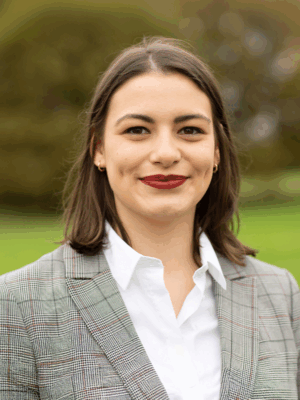
Sarah Davidson
Croda Europe Ltd

Sarah Davidson
Croda Europe Ltd
Bio
Sarah has several years’ experience working in the chemicals industry, and in that time has become a specialist on sustainable chemistry. In her day job, Sarah indulges her passions for science and sustainability, through her role as Technology Development Lead at Croda. In this role she coordinates Croda’s external collaborations, building a vast external network. She has also had a leading role in developing Croda’s first ever Net Zero roadmaps. Prior to this, she has had various roles in Croda in R&D and Corporate Sustainability, following the completion of her Master’s in Chemistry with Industrial Experience from the University of Sheffield. She sits on the Biobased Biodegradable Industry Association board, the University of Bath’s Institute for Sustainability and Climate Change, and also represents Croda on the BioYorkshire Industry Forum.
-
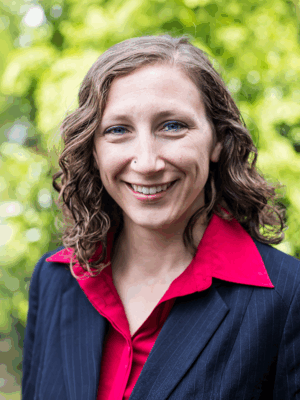
Becky Mackelprang
EBRC
Becky Mackelprang is the Director for Security Programs at the Engineering Biology Research Consortium (EBRC).
Becky Mackelprang
EBRC
Bio
Becky Mackelprang is the Director for Security Programs at the Engineering Biology Research Consortium. She leads EBRC’s Security Focus Area, bringing stakeholders across academia, industry, and government together to integrate security awareness into the policy and practice of engineering biology. Becky leads the development of commentary and recommendations on issues such as screening by synthetic nucleic acid providers and the security implications of the intersection of artificial intelligence and engineering biology. She has implemented strategies to incorporate security into researcher education and training. Becky is committed to supporting an engineering biology research and development ecosystem that maximizes societal benefit while using a multi-faceted approach to support safe, secure, and productive innovation.
-

Fabrizio Ticchiarelli-Marjot
ARIA

Fabrizio Ticchiarelli-Marjot
ARIA
Bio
Dr. Fabrizio Ticchiarelli-Marjot is a scientific and commercial strategist focused on building the synthetic biology platforms that will ensure future food security and environmental resilience.
As a leader within ARIA’s £62M Synthetic Plants Programme, he guides the development of new agricultural technologies to create crops that can thrive in a changing world. His approach is grounded in a decade of experience translating deep tech into commercial reality. As part of the leadership at Agtech startup Gardin, he built the R&D division from the ground up and helped secure over £11M in venture capital. This experience, combined with his work consulting for global life science companies at Synthace, has given him a unique playbook for de-risking and scaling high-impact scientific ventures.
Fabrizio holds a PhD in Plant Science from the University of Cambridge, providing the deep technical foundation for his relentless drive to build the ventures that will shape a better future.
-
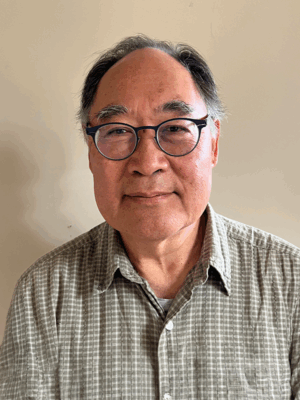
Jim Ajioka
Colorifix

Jim Ajioka
Colorifix
Bio
Jim is currently the CSO of Colorifix Ltd. He recently retired from the University of Cambridge, Dept. of Pathology where his research focused on genome analysis of protozoan parasites and building biosensors to detect human health hazards ranging from arsenic to the hepatitis B virus. More recently, research has centred on engineering microbes to produce and deposit biological molecules onto surfaces, including coloured pigments.
-
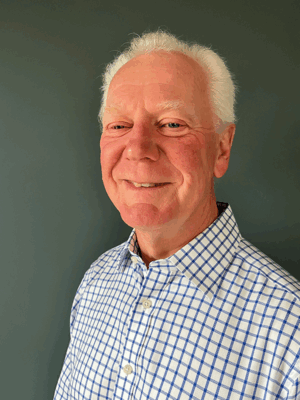
David Tew
GSK

David Tew
GSK
Bio
David Tew recently retired from GSK where he was a Senior Scientific Director. David has 35 years of experience in the pharmaceutical industry from early drug discovery through to drug development and the application of Synthetic Biology. Most recently David led a project to apply Synthetic Biology to redesign the manufacture of therapeutic oligonucleotides. This has resulted in a platform approach to therapeutic oligonucleotide synthesis and manufacture that is both scalable and more sustainable than current approaches.
In 2018 David was appointed as The Royal Society Entrepreneur in Residence at Bristol University working with BrisSynBio and the Bristol Biodesign Institute. David held this position until 2022.
During the SARS-CoV-2 pandemic, David lead the innovation workstream for the Cambridge COVID-19 Testing Centre, a collaboration between AstraZeneca, GlaxoSmithKline and the University of Cambridge. -
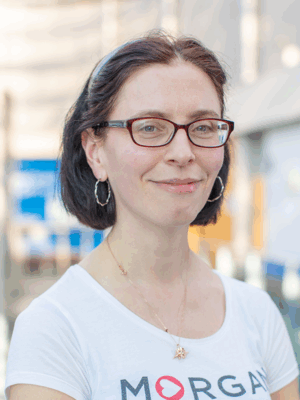
Samantha Bryan
17 Cicada

Samantha Bryan
17 Cicada
Bio
Dr Samantha Bryan: is an Associate Professor at the University of Nottingham, specializing in white biotechnology, metabolic engineering, and the physiology of bacteria. 17 Cicada focuses on the valorisation of recalcitrant waste streams into value utilising microorganisms.
-
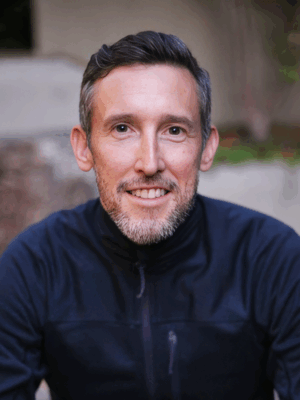
Charles Dimmler
Holiferm

Charles Dimmler
Holiferm
Bio
Charles Dimmler has extensive experience leading emerging growth companies in biotechnology and sustainable materials and ingredients. Currently, he is the CEO of Holiferm, a UK-based industrial biotechnology company that produces next-generation, sustainable biosurfactants at commercial scale for use in home and personal care, as well as a range of industrial applications.
He previously served as CEO, Co-founder, and acted as Chair of the Board of Directors at Checkerspot, Inc., a Certified B Corporation focused on sustainable materials and functional ingredients derived from oils biomanufactured from microalgae. Under his leadership from 2016 to 2024, Checkerspot grew to approximately 100 employees with multiple product launches and consistent annual revenue growth from 2020 to 2024. Checkerspot has raised more than $110 million from venture capital, growth equity, and crossover funds, and established strategic partnerships with a range of industry leaders. Prior to Checkerspot, Charles served as SVP of Corporate Development at Solazyme (Nasdaq: SZYM), where he led financings and strategic transactions totaling over $680 million, including a $220 million IPO. He also led the development and launch of the Algenist™ brand, which was subsequently spun off and sold to Tengram Capital in 2016. Earlier in his career, Charles held corporate development roles at Geron Corporation (Nasdaq: GERN) and began his career as an investment banker at Solomon Partners. He currently serves on the Board of Directors at Izote Biosciences in Berkeley, CA and is an Advisor to Cambrium in Berlin, Germany. Charles earned his MBA from the Stanford Graduate School of Business and his BA in History from Columbia University.
-
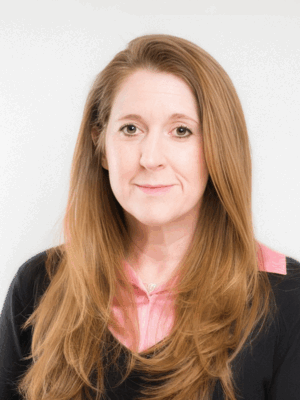
Caroline Martin
High Commission of Canada in the UK

Caroline Martin
High Commission of Canada in the UK
Bio
Caroline leads the science, technology and innovation (STI) program at the High Commission of Canada in London. After more than 20 years in the role, she has a vast knowledge of the research and commercialisation landscapes in both countries and extensive experience in facilitating partnerships between Canadian and UK stakeholders in the public, private or third sectors, at both a strategic and practical level. This requires close monitoring of developments in science & innovation policy as well as regular liaison with senior members of Government, research funding agencies, universities and industry in both Canada and the UK.
Prior to taking up this role, Caroline was an Associate Lecturer in Chemistry at the University of Cambridge. She gained a PhD in organometallic chemistry and catalysis from The University of Edinburgh and conducted post-doctoral research at University College London.
-
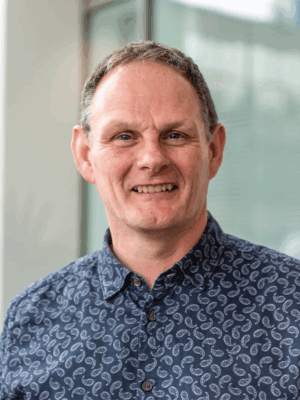
Ian Taylor
Cambridge Consultants part of Capgemini Invent
Ian Taylor is Head of Bioengineering at Cambridge Consultants, part of Capgemini Invent, specializing in AI-enabled platforms that integrate foundation models, mechanistic modelling, and digital twins to make biology predictable and scalable.
Ian Taylor
Cambridge Consultants part of Capgemini Invent
Bio
Ian Taylor is Head of Bioengineering at Cambridge Consultants, part of Capgemini Invent, specializing in AI-enabled platforms that integrate foundation models, mechanistic modelling, and digital twins to make biology predictable and scalable. With over two decades of experience in biomanufacturing and process development, Ian has led innovations spanning enzyme engineering, therapeutic peptides production, DNA data storage and next-generation manufacturing technologies for cell therapies. His work focuses on transforming AI-enabled bioengineering strategies for sustainability and advanced therapeutics; transforming R&D through model-guided science and agentic AI, helping clients, from start-ups to global pharma, accelerate discovery and scale-up with confidence.
-

Beatrix Ellis
GitLife Biotech
Beatrix Ellis is the CEO of GitLife Biotech with over 25 years of global leadership experience spanning biotech, chemicals, and food industries
Beatrix Ellis
GitLife Biotech
Bio
Beatrix Ellis is a commercially focused executive with over 25 years of global leadership experience spanning biotech, chemicals, and food industries. As the CEO of GitLife Biotech, she is driving the company’s fundraising and commercial growth, leveraging her deep expertise in business development, strategic marketing, and investment acquisition. Her proven track record includes scaling start-ups from seed to Series A and beyond, securing multi-million-dollar partnerships, building commercial strategies, and leading market expansions. With a background in chemical engineering and financial analysis, she combines technical acumen with strong business leadership, ensuring sustainable and profitable growth.
-

Chiara Board
P.Happi
Dr Chiara Board is the founder of P.Happi®, a new microbiome protective solution for women’s intimate health.
Chiara Board
P.Happi
Bio
Dr Chiara Board is the founder of P.Happi®, a London-based biotech company pioneering microbiome-based solutions for women’s intimate health. After completing a PhD in Synthetic Biology and Bioengineering and a degree in Advanced Chemical Engineering at Imperial College London, Chiara spent years researching and developing innovative, science-backed products that support women’s long-term wellbeing.
Motivated by her own experience with recurrent infections, she created P.Happi to combine cutting-edge biotechnology with accessible self-care. Its flagship product, the P.Happi Intimate Serum, is the first to use the live bacterium Bdellovibrio bacteriovorus (B.Y.M.® 1405) to selectively target harmful Gram-negative bacteria such as E. coli while preserving the body’s natural flora. Offering a non-antibiotic approach to common conditions like UTIs and bacterial imbalance, P.Happi is available online and through Boots, bringing much-needed innovation to women’s health.
-

Jess Simpson
Twist Bioscience
Synthetic Biology Account Manager at Twist Bioscience
Jess Simpson
Twist Bioscience
Bio
Jess is an Account Manager for Synthetic Biology at Twist Bioscience, a role she has held since November 2023. Based in London, she supports customers across London, Cambridge, and Scotland. In this position, Jess collaborates with a diverse range of clients within the synthetic biology sector, with a particular focus on biologics and protein engineering. She is especially passionate about supporting start-ups and biotech companies, helping them leverage Twist’s industry-leading DNA synthesis solutions. Jess is always happy to connect and discuss how Twist can support innovative research and development.
-
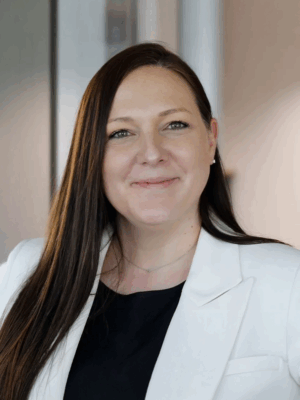
Jodi Barrientos
Ribbon Bio
Jodi brings over 18 years of experience leading high-performing commercial teams in the genomics market. She has a proven track record in building industry-leading organisations focused on operational efficiency and high-growth performance.
Jodi Barrientos
Ribbon Bio
Bio
Jodi brings over 18 years of experience leading high-performing commercial teams in the genomics market. She has a proven track record in building industry-leading organisations focused on operational efficiency and high-growth performance. As CEO of Ribbon Bio, she previously served as Chief Business Officer, where she built foundational commercial and product management infrastructure. Before Ribbon Bio, Jodi held executive roles at Agilent Technologies, overseeing global commercial operations and marketing for the Diagnostics and Genomics Divisions. She also led product management at Qiagen and field consulting for Roche Diagnostics’ OEM business. Jodi began her career as a bench scientist before moving into commercial leadership. She holds a degree in Molecular and Microbiology from Purdue University and conducted her master’s research in cancer biology.
-

Kaly Chatakondu
Arborea
Kaly is the Global Commercial Director of Arborea
Kaly Chatakondu
Arborea
Bio
Kaly has a doctorate in Chemistry from Oxford University and over 30 years in senior leadership roles commercialising food ingredient science and technology within major multinationals before joining Arborea earlier this year. Arborea has developed revolutionary technology to capture and convert carbon dioxide from any industrial source into food, feed, pharma and cosmetic ingredients at scale without needing any fertile land
-
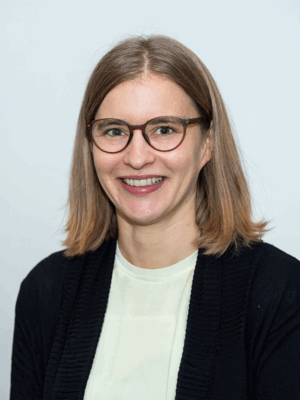
Kerstin Kinkelin
University of Bristol
Kerstin is Engineering Biology Partnerships and Innovation Manager at the University of Bristol
Kerstin Kinkelin
University of Bristol
Bio
Kerstin is Engineering Biology Partnerships and Innovation Manager at the University of Bristol, where she works with academics to identify opportunities for translation and partnering . She also oversees a wide programme of activities for early career researchers to develop their skills in translational research and innovation. Kerstin is lead author on the white paper: Synthetic & Engineering Biology: A joint opportunity for the UK and Switzerland
-
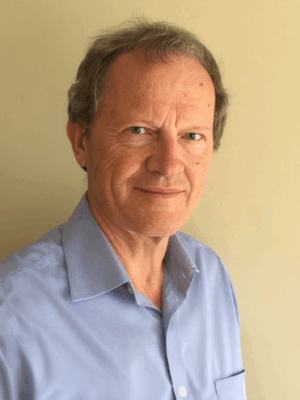
Lionel Clarke
BionerG Ltd
Director, BionerG Ltd and Former Co-Chairman, UK Engineering Biology Leadership Council
Lionel Clarke
BionerG Ltd
Bio
Following academic research in Imperial College, in Cambridge University and in Grenoble, France (as a Royal Society European Research Fellow), Lionel Clarke began his career developing environmentally-improved transport fuels with Shell, initially as global technical lead pioneering the global phase-out of leaded gasoline and, from 2000, the development of advanced biofuels as a means to reduce dependence upon fossil fuels. Motivated by the urgency to develop effective solutions to tackle climate change and the central role that biological systems could play, he left Shell in 2014 to start his own company, BionerG, developing a biobased system for global carbon removal. He was invited by the UK government in 2011 to chair the generation of the UK Synthetic Biology Roadmap, and subsequently to co-chair together with a senior government minister the UK’s Engineering Biology Leadership Council (EBLC), an independent advisory council, through to 2023.
Lionel Clarke is a visiting professor in the Department of Bioengineering in Imperial College and holds an honorary professorial chair in the Faculty of Chemistry in the University of Manchester. In 2019 he was awarded an OBE by HM Queen Elizabeth for services to Synthetic Biology.
-
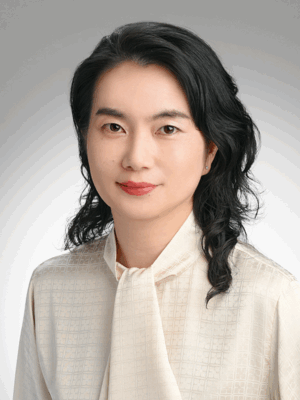
Makiko Matsuo
The University of Tokyo
Makiko Matsuo is a Project Associate Professor at the Graduate School of Public Policy, the University of Tokyo, and an affiliated faculty member at the Institute for Future Initiatives. Her research and teaching focus on Science, Technology, and Innovation Governance.
Makiko Matsuo
The University of Tokyo
Bio
Makiko Matsuo is a Project Associate Professor at the Graduate School of Public Policy, the University of Tokyo, and an affiliated faculty member at the Institute for Future Initiatives. Her research and teaching focus on Science, Technology, and Innovation Governance.
Her expertise lies at the intersection of science, technology, and society, with emphasis on international politics, public policy, and risk studies. She specializes in governance and the ethical, legal, and social implications (ELSI) of emerging technologies, including synthetic biology, the bioeconomy, and food safety. Her recent work includes analysis of genome editing in food and agriculture, as presented in her co-authored paper: “Implications and Lessons from the Introduction of Genome Edited Food Products in Japan” (Frontiers in Genome Editing, 2022). She also co-authored a working paper with policymakers from various ministries: “Challenges in Advancing Biomanufacturing Toward a Bioeconomy: A Framework for Key Considerations in Policy Discussions.”
She frequently gives invited lectures and serves on advisory committees for Japanese government ministries and funding agencies, maintaining strong ties with policymakers. Internationally, she contributes as a member of the OECD BioFutures Expert Group.
She received the Junior Award from the Society for Risk Analysis Japan (SRAJ) in 2013 and the Best Paper Award at its Annual Meeting in 2010. Trained in political science, she earned a Master of International Studies in 2005 and a Ph.D. in 2016 from the University of Tokyo. -
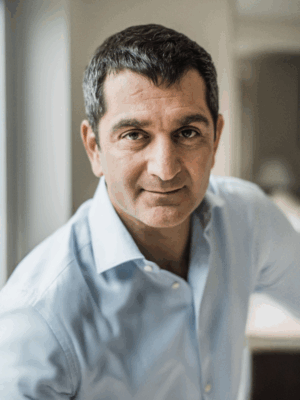
Nadav Rosenberg
Saras Capital
Nadav is the founder of Saras Capital, a tech bio micro-fund based in London.
Nadav Rosenberg
Saras Capital
Bio
Nadav Rosenberg is the founder of Saras Capital, a tech bio micro-fund based in London. Nadav established Saras Capital in 2020 after building a successful portfolio of angel investments in early-stage technology companies and spending almost a decade as a venture partner at Entrepreneur First (EF). His primary investment focus is providing first-check backing to ambitious scientists turned tech bio entrepreneurs.
Before becoming an investor, Nadav held key operational roles at Groupon and Taboola. He was an early operator at Groupon, which went public with a valuation of $9.5 billion, and later joined Taboola as its first European employee, successfully launching its UK, France, and Germany operations before the company’s New York listing at $2.6 billion. He began his career at McKinsey & Co. and holds an MBA from INSEAD and an MSc in Economics from Birkbeck, University of London.
Saras Capital specializes in pre-seed and seed investments in computational-first scientific ventures focused on therapeutics, synthetic biology, and related technologies. The fund was an early backer of companies such as Ochre Bio, Core Biogenesis, Coding Bio, Eleven Therapeutics, Kyron Bio, and many more.
-
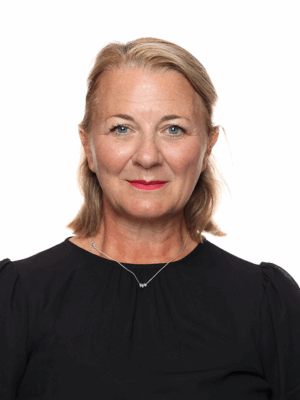
Sarah Jackson
Twist Bioscience
Account Manager at Twist Bioscience
Sarah Jackson
Twist Bioscience
Bio
Sarah is an Account Manager for Synthetic Biology at Twist Bioscience, where she supports researchers in academia, biotech, and pharma in accelerating discovery through high-throughput, silicon-based DNA synthesis. With nearly six years at Twist, she has extensive experience guiding UK customers, particularly those within Oxford’s research ecosystem, across a broad spectrum of synthetic DNA, protein engineering, and functional genomics programmes. Her work focuses on enabling teams to adopt cutting-edge DNA design and synthesis technologies that drive more efficient, scalable, and innovative biological research.
-
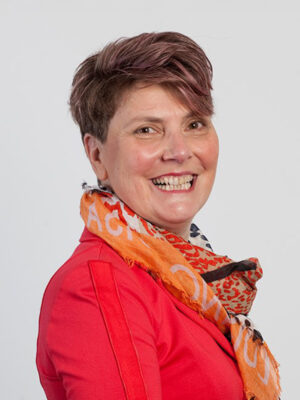
Fredriek van de Straat
Beckman Coulter
After a decade in research, Fredriek transitioned into commercial roles, bringing more than 20 years of experience in laboratory workflow automation.
Fredriek van de Straat
Beckman Coulter
Bio
After a decade in research, Fredriek transitioned into commercial roles, bringing more than 20 years of experience in laboratory workflow automation. She joined Beckman Coulter in 2014 and has since held positions in both sales and business development. Today, she focuses on positioning Beckman’s solutions as essential components of the laboratory workflow within Biomanufacturing.
-
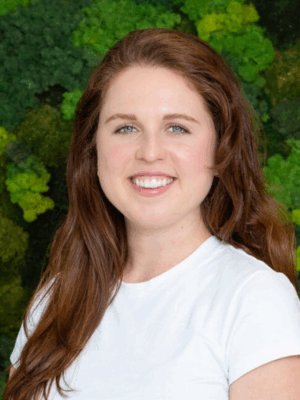
Riley Jackson
Ivy Farm Technologies
Riley is Associate Director of Commercial at Oxford-based cultivated meat company Ivy Farm Technologies, working to help cultivated beef successfully commercialize, connecting consumers and partners with the future of protein.
Riley Jackson
Ivy Farm Technologies
Bio
Riley has spent her career advancing the alternative protein industry, driven by a passion for creating a more sustainable food system. She began her career in advertising and strategy, helping brands communicate the impact of food choices to consumers. While supporting the launch of Beyond Meat into Canada from the agency side, Riley became inspired by the potential of innovative proteins. Since then, she has worked in organizations including the Good Food Institute, Biomilq, and TiNDLE, gaining experience across brand building, partnerships, and business development. At Impossible Foods, she introduced over 20 new products to the U.S. market. Today, Riley is Associate Director of Commercial at Oxford-based cultivated meat company Ivy Farm Technologies, working to help cultivated beef successfully commercialize, connecting consumers and partners with the future of protein.